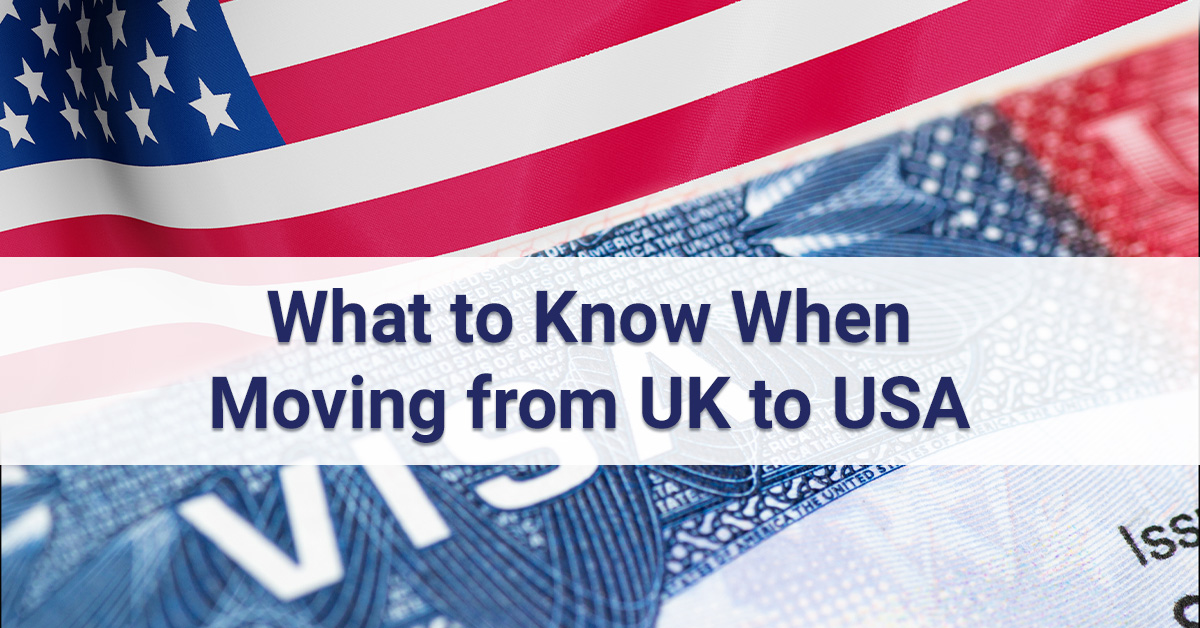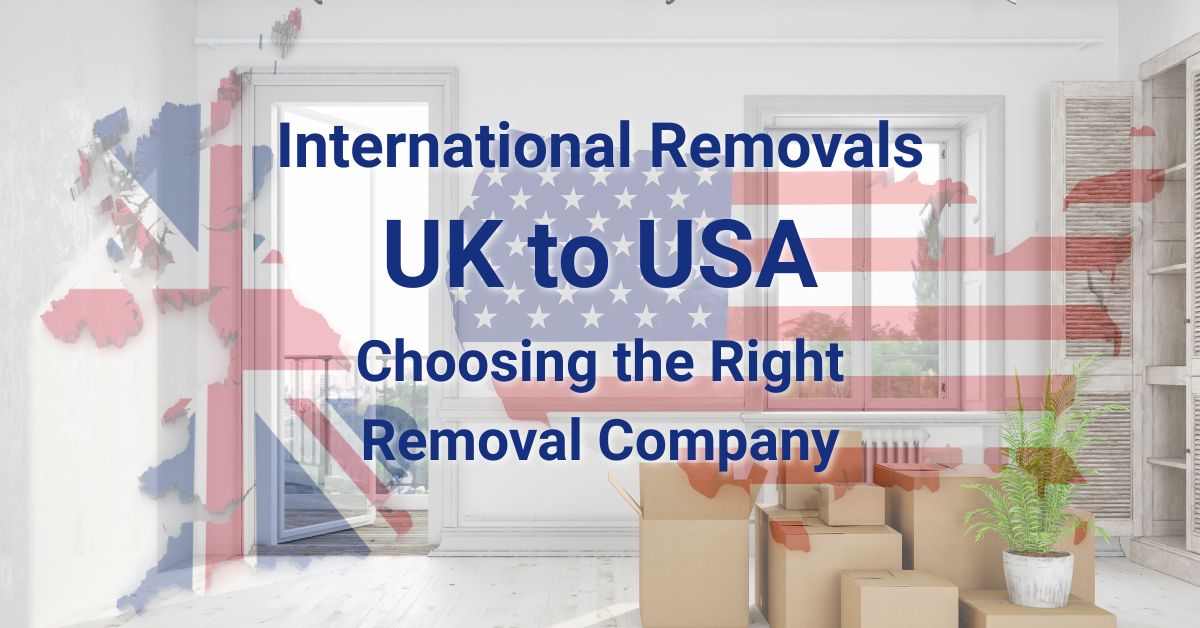Living in Australia vs the USA (2026): Pros and Cons

For Americans considering an international move in 2026, Australia remains one of the most attractive and familiar-feeling destinations. With a shared language, high wages, strong public healthcare, and an outdoor-focused lifestyle, Australia appeals to both working professionals and retirees from the United States.
However, living in Australia is not simply “the USA with better beaches.” Housing costs, distance from the U.S., immigration rules, and taxes all play a major role in whether the move makes sense long-term.
Below is a practical comparison to help you decide whether living in Australia or the USA is the better fit for you in 2026.
Is Living in Australia Better Than the USA?
Short answer:
Australia offers Americans higher average wages, better work-life balance, and universal healthcare, but at a higher cost of living, with expensive housing and strict immigration requirements.
For many Americans, the tradeoff is worth it. For others, it depends heavily on career flexibility and lifestyle priorities.
Australia vs USA: Key Differences at a Glance (2026)
| Category | Australia | United States |
| Language | English | English |
| Healthcare | Universal public system | Private, employer-based |
| Wages | High minimum & average wages | Varies widely |
| Housing | Expensive in major cities | More availability |
| Work-life balance | Strong protections | Employer-dependent |
| Geography | Very remote from the U.S. | Central to global travel |
Pros of Living in Australia
No Language Barrier
For Americans, one of the biggest advantages of Australia is the lack of a language barrier. English is the primary language nationwide, making day-to-day life, professional work, and government processes much easier than in many other expat destinations.
While Australian slang may take some getting used to, communication is rarely a challenge.
High Standard of Living and Wages
Australia consistently ranks among countries with the highest quality of life. Wages are generally higher than in the U.S. for comparable roles, and the national minimum wage is significantly higher.
Combined with worker protections, paid leave, and healthcare access, many Americans find they can maintain a comfortable lifestyle despite higher costs.
Universal Healthcare System
Australia’s public healthcare system provides residents with access to essential medical services without the financial stress often associated with U.S. healthcare.
Many Australians still carry private insurance for elective procedures or faster access, but healthcare costs are far more predictable than in the U.S.
Work-Life Balance
Australian workplace culture generally emphasizes balance. Employees receive paid vacation time, paid sick leave, and protections that are not guaranteed in the U.S.
This focus on quality of life is one of the most appealing aspects for Americans used to long work hours and limited time off.
Outdoor Lifestyle and Climate
Australia’s climate and geography encourage an active, outdoor lifestyle. Beaches, national parks, and coastal cities make it easy to enjoy nature year-round.
For many Americans, the ability to combine city life with easy access to the outdoors is a major draw.
Cons of Living in Australia
High Cost of Housing
Housing is one of the biggest challenges for people moving to Australia. Major cities such as Sydney and Melbourne have extremely high home prices and rental costs.
While wages are higher, housing expenses can significantly impact overall affordability.
Distance from the United States
Australia’s geographic isolation can be difficult for Americans with close family ties in the U.S. Flights are long, expensive, and time-consuming.
Regular visits home are not as easy or affordable as they would be from Europe or Canada.
Strict Immigration Rules
Australia has a points-based immigration system that prioritizes skilled workers, specific occupations, and age limits.
Permanent residency is not guaranteed, and many visas are temporary or employer-sponsored.
Higher Cost of Goods and Services
Imported goods, electronics, and some consumer products are often more expensive in Australia.
This can be an adjustment for Americans accustomed to lower retail prices and wide availability.
Is Australia or the USA Better for Americans in 2026?
The answer depends on what you value most. Australia offers stability, healthcare security, and a slower-paced lifestyle. The U.S. offers flexibility, career mobility, and proximity to family for many Americans.
If quality of life, healthcare, and work-life balance are your priorities, Australia may be the better choice. If affordability, mobility, and career growth are more important, staying in the U.S. may make more sense.
Planning on a Move to Australia?
Carefully weighing the pros and cons—and understanding the practical realities of immigration, housing, and distance—can help ensure the move is the right one for you.
With over 40 years of experience, Schumacher Cargo Logistics is a trusted leader in international moving. Our team understands the unique challenges of overseas relocation, from shipping logistics to customs documentation and delivery coordination, ensuring your move is handled with care and expertise. Whether you need door-to-door household moving or vehicle shipping, choosing an experienced international mover like Schumacher can make your transition abroad noticeably smoother and less stressful.
Get a Free Custom Moving Quote
More Australia Moving Guides
As winter settles over the U.S., many people find themselves imagining a lifestyle change, one filled with warm weather, ocean views, and days that start with sunshine rather than scraping frost off the windshield. For digital nomads and retirees, 2026 is shaping up to be the year they finally make that move.
If you’re planning a relocation abroad, now is the perfect time to explore which coastal destinations offer the right mix of long-term visas, expat communities, livability, and year-round weather. Below are the top 5 beach destinations Americans are choosing for 2026.

1. Algarve, Portugal – Golden Cliffs, Soft Beaches & Mild Winters
The Algarve continues to be one of Europe’s most welcoming regions for Americans. With dramatic coastlines, relaxed seaside towns, and friendly expat communities, it’s one of the easiest transitions for U.S. citizens seeking a new coastal home.
Seasonal Weather in the Algarve
- Winter (Dec–Feb): Mild, often sunny, with cooler evenings. Fantastic for hiking and exploring.
- Spring (Mar–May): Warm, breezy, and ideal for beach walks before summer crowds.
- Summer (Jun–Aug): Hot, dry, and sunny, peak beach season.
- Fall (Sep–Nov): Warm seas, pleasant temperatures, and fewer tourists.
Why Americans Choose the Algarve
- English widely spoken
- Safe and very expat-friendly
- Excellent public transportation and healthcare
- Active communities of digital nomads and retirees
Visa Options
- Digital Nomad Visa (D8)
- D7 Passive Income Visa
- Investment residency options
What Americans Want to Know
The Algarve is affordable and easy to adapt to. Most find that the region’s slower pace, walkable towns, and warm culture make the transition surprisingly smooth.
Learn more about moving to Portugal

2. Costa del Sol, Spain – Mediterranean Sunshine & Modern Coastal Living
Spain’s Costa del Sol is perfect for those who want sunshine, outdoor living, and the amenities of a vibrant city blended with beach-town charm.
Seasonal Weather in Costa del Sol
- Winter: Mild, with bright sunny days—one of Europe’s warmest winter climates.
- Spring: Warm and comfortable with early beach days.
- Summer: Hot and dry, with lively coastal towns.
- Fall: Long, warm season with swimmable water into October.
Why Americans Choose Costa del Sol
- 300+ days of sunshine a year
- Reliable healthcare and public services
- Major international airport in Málaga
- Strong expat communities for easy integration
Visa Options
- Digital Nomad Visa
- Non-Lucrative Visa
- Investment residency pathway
What Americans Want to Know
Many worry that Spain feels too touristy. While summers are lively, most expats settle into quieter coastal neighborhoods with year-round residents and a calmer pace of life.
Learn more about moving to Spain

3. Greece – Island Coastlines, Clear Water & a Relaxed Lifestyle
Greece offers an iconic coastal lifestyle, deep cultural roots, and some of the most beautiful beaches in the world. Crete, Rhodes, and Corfu are especially attractive for Americans moving abroad.
Seasonal Weather in Greece (Islands)
- Winter: Cooler with occasional rain, but still mild compared to northern Europe.
- Spring: Warm and pleasant; perfect for outdoor exploring.
- Summer: Hot and sunny with warm seas—ideal for beach living.
- Fall: Still warm, especially September and October, with quieter beaches.
Why Americans Choose Greece
- Laid-back lifestyle and strong community atmosphere
- Some islands have thriving expat populations
- High-quality local food and outdoor-oriented living
- A balance of affordability and Mediterranean beauty
Visa Options
- Digital Nomad Visa
- Financially Independent Person Visa
- Golden Visa for qualifying investments
What Americans Want to Know
A common concern is whether living on an island is practical year-round. Larger islands like Crete and Rhodes have hospitals, airports, and full services, making them very livable year-round.
Learn more about moving to Greece

4. Phuket & Southern Thailand – Tropical Beach Life With Global-Nomad Energy
Southern Thailand combines tropical beaches, clear water, and a vibrant international community. Phuket, Krabi, and Koh Samui appeal to expats who want warm weather year-round and a relaxed, wellness-forward lifestyle.
Seasonal Weather in Southern Thailand
Because Thailand is tropical, you’ll see warm temperatures year-round, with seasons defined by rainfall rather than temperature differences.
- Dry Season (Nov–Apr): Sunny, warm, and the most popular time for beach living.
- Green/Rainy Season (May–Oct): Warm with regular afternoon showers; quieter and lush.
Why Americans Choose Southern Thailand
- Affordable wellness-based lifestyle
- Great infrastructure for remote work
- Friendly locals and large expat communities
- Beautiful natural surroundings
Visa Options
- Long-Term Residency (LTR) Visa
- Digital Nomad–friendly pathways
- Retirement visas for eligible applicants
What Americans Want to Know
People often ask if the rainy season makes living in Thailand difficult. Most long-term residents appreciate the seasonal balance and enjoy the quieter months when tourism slows.
Learn more about moving to Thailand

5. Gold Coast, Australia – Surf Culture, Safety & Modern Living
Australia’s Gold Coast is ideal for expats wanting an English-speaking, beach-focused lifestyle with excellent services, safety, and strong job and community opportunities.
Seasonal Weather in the Gold Coast
Being in the Southern Hemisphere, Australia’s seasons are opposite the U.S.:
- Summer (Dec–Feb): Hot and sunny with prime beach weather.
- Fall (Mar–May): Warm, stable, and ideal for outdoor activities.
- Winter (Jun–Aug): Mild, dry, and pleasant—still warm enough for beach walks.
- Spring (Sep–Nov): Warm and breezy as temperatures rise again.
Why Americans Choose the Gold Coast
- Clean, safe, and modern coastal cities
- Great surf beaches and outdoor recreation culture
- Strong digital-nomad and entrepreneurial environment
- Easy integration due to shared language and similar lifestyle rhythms
Visa Options
- Working Holiday Visa (for Americans under 35)
- Skilled Worker Visa categories
- Long-stay and retirement pathways depending on income and qualifications
What Americans Want to Know
Many prospective expats ask whether the distance feels isolating. Most Americans living in Australia say the stable government, safety, climate, and quality of life more than make up for the travel time.
Learn more about moving to Australia
How to Choose the Right Beach Destination for Your 2026 Move
When selecting your ideal coastal home abroad, consider:
Climate Alignment
Do you want dry summers? Mild winters? Tropical warmth year-round?
Lifestyle Fit
Busy Mediterranean cities? Calm island villages? Surf-and-fitness culture?
Visa Options
Start the visa research early; some residency applications require months of preparation.
International Moving Planning
Give yourself 6–12 months to organize the logistics of moving overseas with household goods.
Plan Your 2026 Beach Move With Schumacher Cargo Logistics
For over 40 years, Schumacher Cargo Logistics has helped Americans move to the world’s top coastal destinations with reliable service and door-to-door support.
We provide:
- International household goods shipping
- Vehicle and motorcycle transportation
- Professional packing, crating & consolidation
- Customs documentation assistance
- Dedicated support throughout your move
Your dream of living by the beach can become a reality with the right planning and the right moving partner.
Get a Quote for your beach move now

Every year, thousands of people make the leap from the UK to the USA, whether it’s for work opportunities, family, or the adventure of a new lifestyle. But along with the excitement comes the challenge of planning an international move. From cultural differences to customs paperwork, there are important things to know before you pack up your life and head across the Atlantic.
At Schumacher Cargo Logistics, we’ve been helping families and professionals with international removals UK to USA for over 40 years. Here are the key things to keep in mind before your move.
1. Understand the Visa and Immigration Process
Unlike moving within the UK or EU, relocating to the United States requires the right visa. Depending on your situation, you may need a:
- Work visa (sponsored by a US employer)
- Student visa (for education programs)
- Green card (through family, marriage, or lottery)
- Investor or business visa
Be sure to start the process early. US immigration paperwork can take months to finalize. Learn more about Visas.
2. Choose the Right Removal Company
Not all moving companies handle international relocations. When searching for removal companies UK to USA, look for one with:
- Direct UK-USA shipping routes
- In-house facilities in both countries
- Customs clearance expertise
- Flexible shipping options (shared container, exclusive container, air freight)
Schumacher Cargo Logistics offers all of the above, plus over four decades of proven experience moving households safely between the UK and USA.
3. Factor in Shipping Costs and Timelines
The cost of moving household goods from the UK to the USA depends on:
- The volume of goods you’re shipping
- The origin city in the UK and the destination in the US
- Shipping method (shared container, full container, or air freight)
Pro tip: Shared container service is often the most cost-effective for UK-USA moves, while exclusive containers provide more control for larger households.
Transit times typically range from 2 to 6 weeks, depending on ports and shipping schedules.
4. Plan for Customs and Import Rules
Moving goods across borders means dealing with customs. You’ll need to prepare an inventory list of everything you’re shipping, and some items may require special clearance. Common restricted or regulated items include:
- Certain food and agricultural products
- Alcohol and tobacco
- Firearms or weapons
- Rare antiques or artworks
A reputable removal company like Schumacher Cargo Logistics will guide you through customs paperwork to make sure your belongings clear smoothly.
5. Prepare for Lifestyle Differences
While the UK and the USA share a language, life can feel very different once you arrive. A few things to expect:
- Electricity: US outlets are 110V vs. the UK’s 220V, so you’ll need adapters or transformers for electronics.
- Cars: Automatics are standard in the US. If you’re attached to your car, you can ship it with us.
- Healthcare: The US doesn’t have NHS; instead, you’ll need private health insurance.
- Culture: Tipping is expected in restaurants and services. Regional accents, food, and customs vary widely.
6. Settle Into Your New Home Smoothly
Once your shipment arrives in the US, your removal company should deliver your goods directly to your new home. At Schumacher Cargo, we offer door-to-door service, so you don’t have to worry about the logistics of collecting items from the port.
Why Schumacher Cargo is the Trusted Choice for UK-USA Moves
With offices and facilities in both countries, Schumacher Cargo provides everything you need for a successful move:
- Over 40 years of UK–USA moving expertise
- Door-to-door service from your UK home to your new US residence
- Custom quotes tailored to your needs and budget
- Trusted partners and in-house teams for safe handling of your belongings
Start Your UK to USA Move Today
If you’re planning to relocate from the UK to the USA, don’t leave your move to chance. Schumacher Cargo Logistics specializes in international removals UK to USA and will make sure your transition is smooth, secure, and stress-free.
Call us toll-free at 1-800-599-0190
Or start your free online moving quote today.

Moving from the UK to the USA is an exciting new chapter, but it can also feel overwhelming. Whether you’re relocating for work, education, family, or a long-term lifestyle change, one of the biggest decisions you’ll face is how to move your household goods safely and affordably across the Atlantic.
At Schumacher Cargo Logistics, we’ve specialized in international removals between the UK and USA for over 40 years. With facilities in both countries and a dedicated team of movers, we make the process smooth, secure, and stress-free. If you’re searching for a removal company UK to USA, here’s everything you need to know to plan your move with confidence.
Why Choose a Specialist in UK – USA Removals?
There are many moving companies in the UK, but not all have the expertise required for transatlantic relocations. A specialist like Schumacher Cargo offers:
- Direct UK – USA routes: Faster sailings with multiple departures each month from ports such as Felixstowe and Southampton.
- Customs expertise: Guidance on US import paperwork, customs clearance, and avoiding costly delays.
- Door-to-door service: We handle everything from collection at your UK home to delivery in your new US residence.
- In-house facilities: Schumacher operates its own warehouse outside London and multiple US ports (New York, Los Angeles, Houston, Miami, Savannah).
What Can You Ship from the UK to the USA?
Most household goods can be shipped when moving to the United States, including:
- Furniture and personal belongings
- Kitchenware and home décor
- Books, clothing, and electronics (with the correct adapters or transformers)
- Cars and motorcycles
- Antiques, artwork, and family heirlooms
Our team helps you decide which items are worth shipping and which may be better to purchase new once you arrive in the US.
Shipping Options for UK – USA Removals
Every move is unique, so we offer flexible solutions depending on your budget and timeframe:
- Shared Container (Groupage): Ideal for smaller shipments. Pay only for the space you use.
- Exclusive Container: A 20′ or 40′ container reserved for your belongings, perfect for large households or full home relocations.
- Air Freight: The fastest option for urgent or high-value shipments, though more costly.
How Much Do Removals to the USA Cost?
The cost of shipping household goods from the UK to the USA depends on:
- The volume of your goods
- Your UK origin city and US destination
- Shipping method (shared vs. exclusive container vs. air freight)
- Seasonal demand and port fees
Because every move is different, Schumacher Cargo provides custom quotes to ensure you get the most cost-effective option for your situation.
Tip: East Coast arrivals (such as New York) often have lower rates and faster transit times compared to West Coast arrivals.
Why Schumacher Cargo is the Right Choice
Choosing the right international removal company UK to USA is about trust, reliability, and experience. Here’s why thousands of UK families and professionals have chosen us:
- Over 40 years of expertise in transatlantic relocations
- Local presence in both the UK and USA
- Customs clearance support to prevent delays
- Flexible shipping options to match your budget and timeline
- Safe, secure handling with our own facilities and trusted partners
We don’t just move your belongings, we make sure your new life in the US starts smoothly.
Popular UK to USA Relocation Routes
We regularly move clients from across the UK to major American cities, including:
- From London to New York – one of the fastest and most popular routes
- From Manchester to Los Angeles – ideal for tech and entertainment professionals
- From Edinburgh to Miami – popular for families seeking sunshine
- From Belfast to Houston – for those moving into the energy sector
No matter your starting point in the UK, our team can coordinate a seamless move to any US city.
FAQ
How do I choose the best removal company from the UK to the USA?
Look for a specialist in international removals UK to USA with in-house facilities in both countries, regular sailings, customs clearance support, and flexible options (shared container, exclusive container, or air). Ask about door-to-door service, insurance coverage, and estimated transit times.
How much do removals to the USA cost from the UK?
Costs depend on shipment volume, UK origin and US destination, service type (shared vs. exclusive container vs. air), and season. We create custom quotes so you only pay for what you need.
What’s the difference between shared (groupage) and exclusive containers?
Shared containers let you pay only for the space you use, ideal for smaller moves and budget-focused relocations. Exclusive 20′ or 40′ containers provide greater control, faster availability at destination, and are best for full-household moves.
Do you offer door-to-door removals from the UK to the USA?
Yes. We handle collection in the UK, export packing, customs clearance, ocean transport, US import, and final delivery to your new home.
Which UK and US ports do you use?
We consolidate in the UK and regularly route via major ports such as Felixstowe. In the US, common arrival gateways include New York, Los Angeles, Houston, Miami, and Savannah, with onward delivery nationwide.
Can I ship my car or motorcycle with my household goods?
Yes. We offer vehicle shipping alongside household goods. We’ll advise on documentation, cleaning requirements, and import eligibility for your vehicle.
What documents are needed for customs when moving to the USA?
You’ll need a detailed inventory, identification, and import forms. If you’re entering on a visa, bring supporting immigration documents. We guide you through the paperwork to help avoid delays.
Is insurance included with international removals?
We offer marine cargo insurance for additional protection during transit. Your Move Coordinator will explain coverage levels and provide a policy tailored to your shipment.
How far in advance should I book my UK to USA removal?
We recommend booking 4 – 8 weeks before collection, earlier in peak periods. This ensures preferred dates, equipment, and sailing schedules.
Ready to Start Your Move?
If you’re planning an international removal from the UK to the USA, partner with a company that knows the route inside and out. At Schumacher Cargo Logistics, our team is here to guide you every step of the way from your first quote to unpacking in your new American home.
Call us at 1-800-599-0190 (US toll-free) or Get a Custom Quote Now.
Thinking about packing up your life and starting fresh in another country? You’re not alone. More Americans than ever are considering international moves for love, career, adventure, retirement, or just a change of scenery. And while the idea of living abroad is exciting, the process of getting there can be overwhelming.
At Schumacher Cargo Logistics, we’ve helped thousands of people move overseas, and we know how daunting it can feel at first. That’s why we created this step-by-step guide—to help you stay organized, stay sane, and actually enjoy your journey abroad.
Step 1: Choose the Right Destination for You
If you’re reading this, you’ve likely already completed this step. But if you’re just starting the process and figuring things out, this step applies to you too. Before you start packing boxes, you’ll want to do your homework on where you’re going. Consider:
- Cost of living: Will your income stretch further, or will you need to adjust your budget?
- Visa and residency requirements: Every country is different—some are easy to move to, others require more planning.
- Language and culture: Are you ready for a new language? A new pace of life?
- Safety and healthcare: Especially important if you’re moving with children or retiring abroad.
Pro tip: Join expat forums and social media groups to hear firsthand what life is really like in your destination of choice.
Step 2: Get Your Documents in Order
This is the not so glamorous but very important part. Start gathering and updating:
- Valid passports (check expiration dates!)
- Visas or permits
- Birth and marriage certificates
- Medical and vaccination records
- Pet documentation (if they’re coming too, and they should be!)
- School records and transcripts
You’ll also want to scan and store digital copies of everything, just in case.
Step 3: Decide What to Ship
Spoiler Alert: You can take it all! International moves can be complex, and there are a lot of misconceptions about taking your household and vehicles with you on your journey. Its surprisingly easy to take all of your favorite comforts with you, big or small.
Our team at Schumacher can help you pack, and transport all of your belongings securely and efficiently anywhere in the world.
Step 4: Hire the Right International Mover
Working with an experienced international moving company (like us!) can take a huge amount of the stress off your plate. Look for a mover that offers:
- Door-to-door service
- Help with customs paperwork
- Tracking and communication throughout the journey
- Experience in your specific destination country
We’ve been doing this for over 40 years, and we know what it takes to get you—and your belongings—where you’re going, safely and on time.
Step 5: Tackle the Logistics at Home and Abroad
A few more details to cross off your list:
- Notify your bank, credit card companies, and insurance providers
- Cancel or transfer utilities and subscriptions
- Set up mail forwarding or a virtual mailbox
- Arrange for housing (temporary or permanent) in your new country
- Make a plan for phone service and internet abroad
This is also a good time to connect with local expat groups, schools, or community services in your new city.
Step 6: Prepare Emotionally for the Change
Moving abroad isn’t just a logistical challenge—it’s an emotional journey. It’s okay to feel both excited and terrified. Homesickness is real. Culture shock is normal. But so is growth, joy, and the incredible sense of accomplishment that comes from starting a new chapter.
Give yourself time, and know that the hardest part is often just getting started.
Ready to Start Your International Move?
Schumacher Cargo Logistics is here to help every step of the way, from the first box packed to the last one delivered. Whether you’re moving for work, school, family, or adventure, our experienced team makes international moving simple, secure, and stress-free.
Contact us today for a free quote









